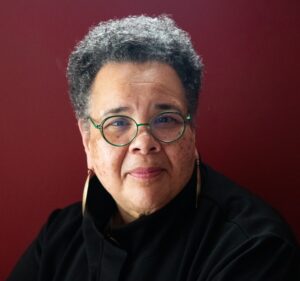
Fear Will Make You Hurt Yourself
Fear is the anxiety that you are about to lose something you love, need, have rightfully earned or deserve. Fear will make you hurt yourself, silence yourself, edit yourself in ways that contradict or disavow your own best pursuits. Since we teach who we are, showing up afraid will only serve to distort your teaching, raise the apprehension in your classroom and model a sense of distrust. While I understand the impulse to be afraid, we must choose to live unafraid, especially in our own classrooms.
Uncertainty has been weaponized. Random acts of callousness have been normalized. Scarcity is being orchestrated. Universities are being pressured in strange and unpredictable ways. The enterprises of education are being guillotined. If there was ever a time that provoked fear, anger, and confusion for those of us employed in higher education — now is that moment. Even so, my hunch is that it is shortsighted to expect that preemptive acts will rescue anyone from the strategies of demolition and anarchy. It is not likely that the fight can be avoided—particularly for those trying to skirt it. While cowering from the fight is an option, we would be foolish to think that cowering from the attack will lessen the challenge. Fear will drive you to attempt ineffective strategies.
The other day a colleague emailed the Wabash Center asking that we remove their syllabi from our online collection. They were afraid the contents of their courses would be read as diversity, equity and inclusion materials and did not, given the political climate, want to risk being castigated. I can understand their desire to avoid worry, but removing syllabi from the internet, at best, is misguided. The fact-of-the matter is that nothing is ever actually removed. Why would the colleague think that hiding materials would make them safe? In this climate, compliance has not been met with a cease fire. I recognize that the fearful colleague is following suit with many prestigious universities who have performed an audit of their own websites, purged language of welcome and belonging, then re-languaged their program descriptions for public consumption. I suspect our safety will depend upon the capacities of our intellectual leaders to decide not to be intimidated. Harvard is leading the way.
Today, a colleague teaching at a state university reported that their department chair announced that she had recommended to the provost a 60% cut in the department’s budget. The department chair stated that she hoped that by volunteering the massive budget cut that she would avoid the impending budget fights. Once colleagues were clear that this recommendation was made to preempt the department head from having to fight for their department’s budget, the startle of colleagues shifted to rage. They felt betrayed. When the faculty pressed the department head for a rationale, the department chair explained that because they were close to retirement they were entitled to choose “peace” and avoid the impending university wide budgetary conflicts. Now, the department is waiting in fear. They are afraid that the department head’s wanton actions communicated to the university the lack of importance of the entire department. Wittingly or unwittingly, the timid department head chose to conspire in her own demise. She had not considered the welfare of the community over her own fear-driven impulse to preemptively concede—or maybe she had. Evil takes advantage of self-absorption and is intensified.
We do not have the luxury of being afraid if it allows avoidance, silence, or being untrue to our central aims. Values which are easily discarded to avoid a fight might need to be reassessed, but now that crisis is upon us, conceding seems reckless. Safety is not ensured. We must know where we stand before the fight comes.
If we are doing our jobs of good teaching, teaching religion and theology inherently cultivates voiced students who critically and imaginatively critique the status quo. We know there are no dangerous thoughts; to those who would squelch wonder, imagination and freedom, thinking itself is dangerous. If in this moment we waffle on this rudimentary aim of teaching — why did we choose teaching in the first place? And why do we remain in higher education classrooms? Certainly, the individual and collective answers to these questions will matter as we decide our engagement in the vitriolic challenges of this moment. May our fear not become our hallmark. The worst thing we can do is panic and allow our fears to be the guiding force.
This morning, I emailed my Associate Directors a copy of Audre Lorde’s The Transformation of Silence into Language and Action. Lorde's speech sheds light on the factors that may cause, in times of trouble, some people to remain silent while enabling others to speak an act. At our next director’s discussion, I am going to begin the dialogue with this Lorde quote:
“For we have been socialized to respect fear more than our own needs for language and definition, and while we wait in silence for the final luxury of fearlessness, the weight of that silence will choke us."
Together, we will discuss the ways Wabash Center will stand firm in our commitments, and the ways we will steadfastly emphasize our mission of improving teaching, knowing that the aim of good teaching is to provide radical hospitality, to create space for open dialogue and to encourage creativity and imagination for future building.
Reflection Questions for Leaders in Education
- What do you do when you do not know what to do and you are afraid to do anything?
- What habits and practices (sacred or otherwise) will calm you during extended crisis?
- Who is your wise counsel in the season of doubt and distrust?
- How do you work through experiences of unprovoked or unforeseen change?
- What if the challenge is bigger than your capacity to lead, to teach, to serve?
Leave a Reply